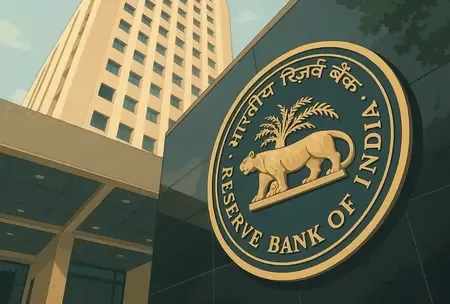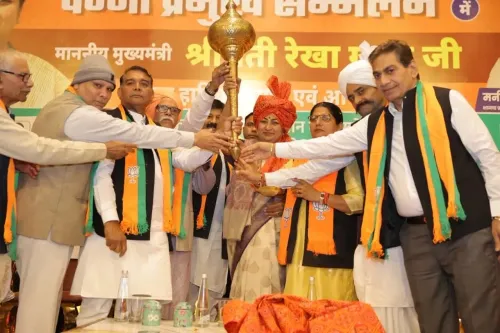Is the Bhagavad Gita the 'True Inspiration of Dharma' and India's Guiding Philosophy?

Synopsis
Key Takeaways
- Bhagavad Gita serves as an inspirational guide for followers of Sanatan Dharma.
- The text emphasizes purity, clarity, and dedication in life.
- India's view of Dharma extends beyond rituals to encompass a holistic way of life.
- Even battlegrounds are seen as fields of duty in the context of Dharma.
- India's message of compassion and support for the oppressed resonates globally.
New Delhi, Nov 23 (NationPress) The Chief Minister of Uttar Pradesh, Yogi Adityanath, on Sunday highlighted the teachings of the Shrimad Bhagavad Gita, referring to it as the “true inspiration of Dharma” and a core element of India's civilizational philosophy.
While addressing attendees at the Divya Geeta Prerna Utsav in Lucknow, which was also attended by RSS chief Mohan Bhagwat, he emphasized that the 700 verses of the Bhagavad Gita act as a guiding mantra for those who follow Sanatan Dharma.
“When we talk about the Divya Gita Prerna Mahotsav, we recall the divine teachings of the Gita that encourage purity, clarity, and dedication in life. The Gita is more than just a text; it represents a lifestyle,” he stated.
CM Yogi insisted that India has always perceived Dharma beyond mere rituals.
“In our view, Dharma is not limited to acts of worship. Worship is merely one facet of it. Each individual engages in worship according to their beliefs, sect, and faith. However, fundamentally, Dharma within our culture is the art of living — a comprehensive approach to life,” he added, affirming that the Gita encapsulates this philosophy.
Reflecting on the opening shloka of the Gita, the Chief Minister pointed out that the epic begins with the term ‘Dharmakshetra’.
“In no other part of the world would a battlefield be seen as a sacred domain of Dharma. Yet in Bharat, even a battleground is viewed as a place of duty — where one engages in virtue by doing good and incurs sin by acting wrongly. A Sanatani consistently strives to uphold the path of righteousness,” he remarked.
He further noted that India has long conveyed the message of “Live and Let Live” to the world.
“We have never claimed superiority, despite possessing everything. We have always supported those who came to us. In times of adversity, followers of Sanatan Dharma have stood resolutely with others. Injustice must never occur. The ethos of Vasudhaiva Kutumbakam has originated from this very land,” he stated.
The Chief Minister concluded by asserting that the message of compassion and duty ingrained in India's civilization continues to guide the global community today.









